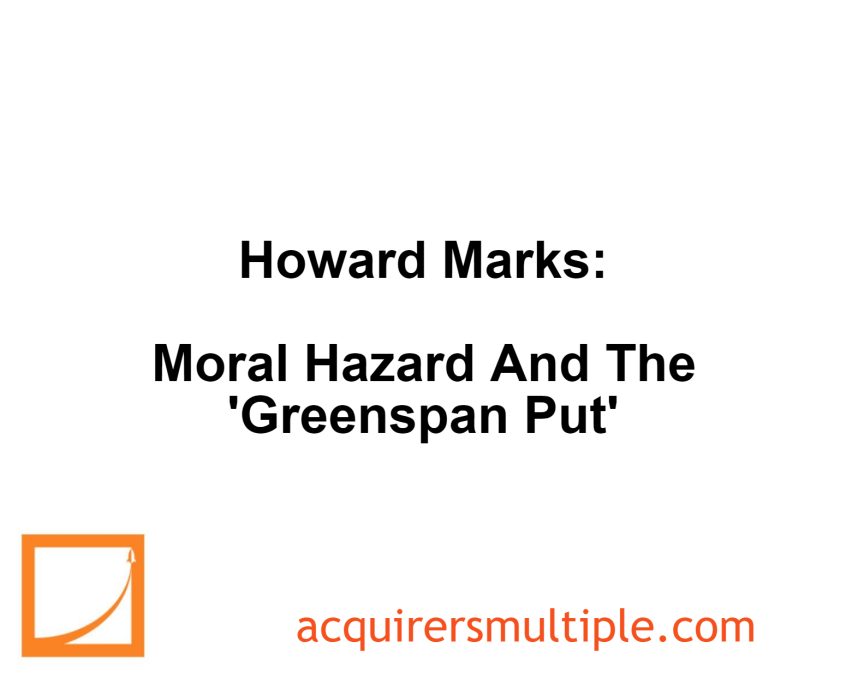In his latest memo titled – Lessons From Silicon Valley Bank, Howard Marks discusses moral hazard and the ‘Greenspan Put’. Here’s an excerpt from the memo:
One problem with government solutions of any kind – like the so-called “Greenspan put” – is the possibility that they’ll generate moral hazard. That is, players will conclude that they’ll be rescued if they make a mistake. This suggests they can freely engage in high-risk, high-return behavior; if it works, they’ll get rich, but if it fails, they’ll be bailed out. People sometimes refer to this as “privatizing profits and socializing losses.”
On March 9, when SVB was hanging by a thread while experiencing massive withdrawals, people started talking about a possible government guarantee of all deposits. One of the arguments against such a bailout was that it would create moral hazard. If people know they’ll be protected from losses, they’ll have no reason to examine the solidity of a bank before depositing money, meaning the diligence function won’t be performed. Consequently, poorly run, poorly capitalized banks will be permitted to stay in business and grow.
But we simply cannot expect depositors to perform that function. Since banks’ operations are characterized by mismatched assets/liabilities and a dependence on depositors’ trust, it’s terribly hard to assess their financial health from the outside (maybe sometimes from the inside, too, since SVB succumbed to what in retrospect seem to have been obvious managerial mistakes). In the 28 years that Oaktree has been in business, we’ve invested in relatively few deposit-taking financial institutions. Other than in cases where we’ve become insiders, we’ve generally avoided investing in banks because their complex, often impenetrable financial disclosures and reliance on trust make them harder to evaluate than we like.
Few people are capable of studying banks’ financial statements and determining whether they’ll remain solvent and liquid. Expecting depositors to do so could cause banking to grind to a halt. That’s why deposit insurance was introduced during the Great Depression. For the same reason, the government’s decision to fully guarantee SVB’s deposits was quite appropriate.
Notably, however, management and shareholders weren’t bailed out; rather, in today’s parlance, they were “bailed in,” or left with their losses. We can hope their losses will encourage other investors and bank managers to apply greater prudence in their future decision-making.
You can read the entire memo here:
Howard Marks Memo – Lessons From SVB
For all the latest news and podcasts, join our free newsletter here.
Don’t forget to check out our FREE Large Cap 1000 – Stock Screener, here at The Acquirer’s Multiple:




